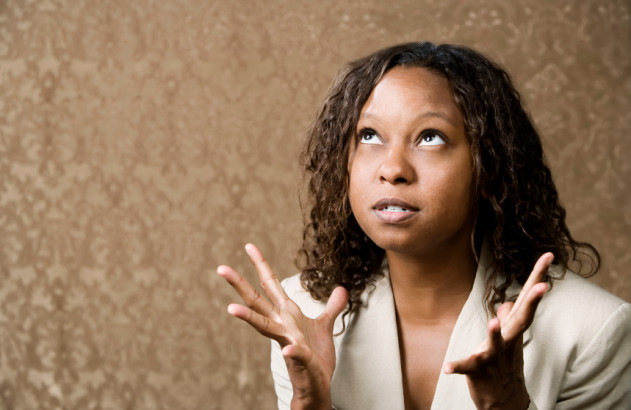In the face of so much injustice, who wouldn’t be angry?
“You’re a feminist? You don’t seem that angry.”
The first time (of many) that this question was posed to me in high school, I stared blankly at the peer who asked it. I felt incapable of coherently responding: an uncommon experience for a self-proclaimed teenage feminist such as myself. My friend stared impassively back. He clearly considered the question one made in passing, while I instantly grappled with it as the root of a philosophical dilemma.
There were obvious answers to this (frankly tactless) question. There was denial, in which I could bat my eyelashes and try to play up my gentle, even-tempered femininity while still asserting my belief in equality. There was defense, in which the pendulum of my reply could swing in the opposite direction: with narrowed eyes and some muttered expletives I could easily confirm his implied hypothesis about “angry feminists.” And then there was always silence, which I’ve found is rarely a productive response in any capacity, including this situation.
Ultimately, this assumed stereotype posed conflicting demands that left me paralyzed. Asking me if identifying as a feminist is equitable to feeling angry cornered me between defense and offense. The stated assumption implored me to educate and correct the ignorant asker while simultaneously goading me to define my own beliefs and intentions, to confront my own anger (or lack thereof).
At 16, I felt this internal tug of war, this paralysis. My confused reply was a jumble of half-baked “Feminist 101” statements and a slow, embarrassing descent into a series of juvenile comebacks.
But even more than feeling conflicted as to how to respond, I felt frustrated that the obvious options for response were so dichotomous and, ultimately, false. The categories of “angry” (and, therefore, “bad”) or “not angry” (and, therefore, “good”) were too polarized to encompass the truth of anger’s role in feminism. Anger in the feminist movement is highly nuanced. The “angry feminist” stereotype has always felt to me like equal parts strategically discrediting stereotype and inevitable, undeniable reality.
They want us to look angry because it counters the feminine gender norm, because angry women are unattractive and therefore women will be dissuaded from joining this movement, the official feminist party line states. Framing us as angry is actually indicative of our power! Feminists agree, grasping at a glint of silver lining (which has always appeared to me to be less of a lining than it is a deceptive trick of the light).
While the attempt to view this intentionally insulting stereotype optimistically is noble in a way, the fact is this defense still problematically positions anger as the topic of a debate. When we face the reality that, for example, 1 in 3 women worldwide have experienced either physical and/or sexual violence, that two thirds of the world’s adult illiterates are women, and the majority of the global poor are women, there is no question as to whether or not we’re angry. Only a sociopath could consider this reality without feeling anger. Anger is human and at least partially essential to motivating us to act. Debating what this anger superficially means for the movement, if it’s a strategic publicity advantage or disadvantage, and how we should “spin” it is ultimately a distraction.
Anger in the feminist movement shouldn’t be considered in a combative binary, as a crucial element that distinguishes “us” from “them.” My generation is not interested in what this anger is or whether or not it exists. We care about how we’re angry, about the ways in which we’re using that anger. Namely, are we using anger to point fingers, to label the absences, what we don’t have, and how others are failing us? Or are we feeling it deeply and using it to fuel creation, to motivate us to construct the feminist movement we believe can create the world in which we want to live?
My generation wants to use anger constructively rather than deconstructively. Presentations of second wave feminists as angry bra-burners may be fictional propaganda more than historical reality, but regardless it’s not a model with which we relate. We don’t want to yell about what’s wrong, to divide the world into binaries of “sexist” or “feminist,” of “good” and “bad.” We want to work together to embrace the nuance of every situation, to understand the ways in which our lived realities are intersectionally created and how we can work together, not necessarily just to destroy a patriarchal system but to instead focus on creating a feminist reality.
Our feminism may start with anger, with a very human response to injustice. But it cannot and will not end with it.
Julie Zeilinger is an editorial fellow at Mic as well as the Founding Editor of The FBomb (thefbomb.org), a feminist blog and community for young adults partnered with the Women’s Media Center, the organization founded by Gloria Steinem, Jane Fonda, and Robin Morgan. Her writing has been published in the Huffington Post, Billboard Magazine, Forbes, Jezebel and CNN amongst other publications and she is also the author of “A Little F’d Up: Why Feminism Is Not A Dirty Word” and “College 101: A Girl’s Guide to Freshman Year.”
Related Links:

